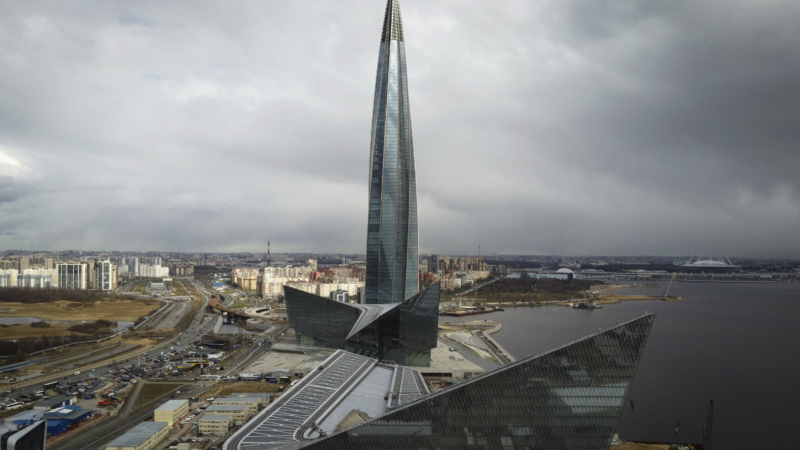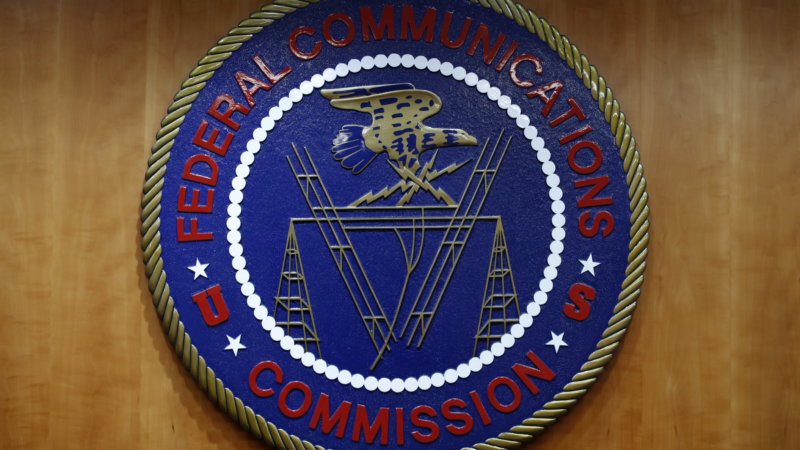Ukraine halts transit of Russian gas to Europe after a prewar deal expired
KYIV, Ukraine — Ukraine on Wednesday halted Russian gas supplies to European customers that pass through the country, almost three years into Moscow’s all-out invasion of its neighbor, after a prewar transit deal expired at the end of last year.
At a summit in Brussels last month, Ukrainian President Volodymyr Zelenskyy vowed that Kyiv would not allow Moscow to use the transits to earn “additional billions … on our blood, on the lives of our citizens.” But he briefly held open the possibility of the gas flows continuing if payments to Russia were withheld until the war ends.
Ukraine’s energy minister, Herman Halushchenko, confirmed on Wednesday morning that Kyiv had stopped the transit “in the interest of national security.”
“This is a historic event. Russia is losing markets and will incur financial losses. Europe has already decided to phase out Russian gas, and (this) aligns with what Ukraine has done today,” Halushchenko said in an update on the Telegram messaging app.
Russia’s Gazprom said in a statement on Wednesday morning that it “has no technical and legal possibility” of sending gas through Ukraine, due to Kyiv’s refusal to extend the deal.
Even as Russian troops and tanks moved into Ukraine in 2022, Russian natural gas kept flowing through the country’s pipeline network — set up when Ukraine and Russia were both part of the Soviet Union — to Europe, under a five-year agreement. Gazprom earned money from the gas and Ukraine collected transit fees.
Before the war, Russia supplied nearly 40% of the European Union’s pipeline natural gas. Gas flowed through four pipeline systems, one under the Baltic Sea, one through Belarus and Poland, one through Ukraine and one under the Black Sea through Turkey to Bulgaria.
After the war started, Russia cut off most supplies through the Baltic and Belarus-Poland pipelines, citing disputes over a demand for payment in rubles. The Baltic pipeline was blown up in an act of sabotage, but details of the attack remain murky.
The Russian cutoff caused an energy crisis in Europe. Germany had to shell out billions of euros to set up floating terminals to import liquefied natural gas that comes by ship, not by pipeline. Users cut back as prices soared. Norway and the U.S. filled the gap, becoming the two largest suppliers.
Europe viewed the Russian cutoff as energy blackmail and has outlined plans to completely eliminate Russian gas imports by 2027. The move
Russia’s share of the EU pipeline natural gas market dropped sharply to about 8% in 2023, according to data from the EU Commission. The Ukrainian transit route served EU members Austria and Slovakia, which long got the bulk of their natural gas from Russia but have recently scrambled to diversify supplies.
Gazprom halted supplies to Austria’s OMV in mid-November over a contractual dispute, but gas flows through Ukraine’s pipelines continued as other customers stepped in. Slovakia this year inked deals to begin buying natural gas from Azerbaijan, and also to import U.S. liquefied natural gas through a pipeline from Poland.
Among the hardest-hit will be EU candidate country Moldova, which was receiving Russian gas via Ukraine and has brought in emergency measures as residents brace for a harsh winter and looming power cuts.
Separately from Kyiv’s decision to let the transit deal expire, Gazprom said last month it will halt gas supplies to Moldova starting on Jan. 1, citing unpaid debt. Gazprom has said Moldova owes close to $709 million for past gas supplies, a figure the country has fiercely disputed, citing international audits.
Moldova, Ukraine and EU politicians have repeatedly accused Moscow of weaponizing energy supplies.
On Wednesday, Polish Foreign Minister Radek Sikorski called Ukraine’s move to halt supplies a “victory” for Russia’s opponents. On a post on X, Sikorski accused Moscow of systematic attempts to “blackmail Eastern Europe with the threat of cutting off gas supplies,” including through a Baltic pipeline bypassing Ukraine and Poland and running directly to Germany.
Moscow can still send gas to Hungary, as well as non-EU states Turkey and Serbia, through the TurkStream pipeline across the Black Sea.
Natural gas is used to generate electricity, power industrial processes, and in some cases to heat homes.
Separately, overnight into New Year’s Day, Russia launched a drone strike on Kyiv that left two people dead under the rubble of a damaged building, according to the city administration. At least six people were wounded across the Ukrainian capital, according to Mayor Vitali Klitschko.
Net neutrality is struck, ending a long battle to regulate ISPs like public utilities
A U.S. Court of Appeals this week ruled that the FCC did not have legal authority to revive the so-called net neutrality rules that were first introduced a decade ago under the Obama Administration.
The soldier who died in Cybertruck explosion wrote it was intended as a ‘wakeup call’
Matthew Livelsberger, a 37-year-old Green Beret from Colorado, also wrote in a note that he needed to "cleanse my mind" of the lives lost of people he knew and "the burden of the lives I took."
What’s Making Us Happy: A guide to your weekend viewing, listening and gaming
Each week, guests and hosts on NPR's Pop Culture Happy Hour share what's bringing them joy. This week: A documentary about yacht rock, Colouring's new album, the game Pentiment and an action movie about TSA.
Britt Allcroft, who brought Thomas the Tank Engine to television, dies at 81
The beloved blue locomotive was first imagined in the 1940s — he starred in stories Rev. Wilbert Awdry told his son. Allcroft adapted Awdry's The Railway Series into Thomas the Tank Engine & Friends.
Trump will be sentenced Jan. 10 in New York case, days before his inauguration
In a decision Friday, New York Judge Juan Merchan noted that his inclination was to not impose a sentence of incarceration.
The attack in New Orleans reveals ISIS’ influence lingers, experts say
The man behind the New Year's Day attack in New Orleans said in videos that he was inspired by ISIS and had joined the group this summer. This attack shows ISIS' resonance and resilience persists.






